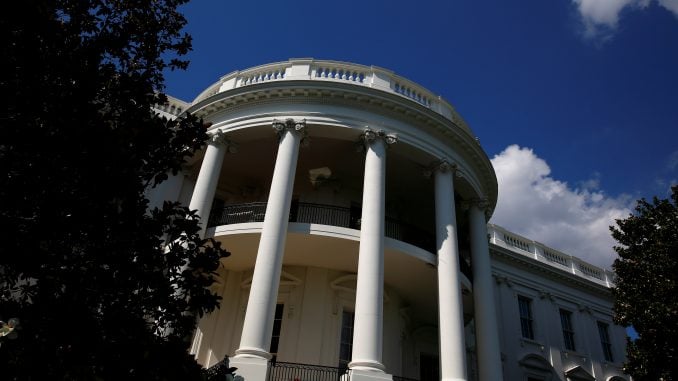
Washington, D.C. – President Donald Trump gathered with senators and Cabinet officials on Tuesday to discuss ways to lower the cost of the nation’s biofuels policy to refiners, a meeting analysts say pits Big Corn against Big Oil.
The meeting reflects rising concern in the White House over the current state of the U.S. Renewable Fuel Standard (RFS), a law requiring refiners to mix biofuels such as corn-based ethanol into their fuel, which has increasingly divided two of Trump’s most important constituencies.
A refining company in the key electoral state of Pennsylvania last month blamed the regulation for its bankruptcy.
Tuesday’s meeting included Republican Senators Ted Cruz of Texas, Pat Toomey of Pennsylvania, Chuck Grassley and Joni Ernst of corn state Iowa, along with Environmental Protection Agency Administrator Scott Pruitt, Agriculture Secretary Sonny Perdue, and Energy Secretary Rick Perry, according to sources briefed on the meeting.
Ahead of the meeting, Cruz lifted a hold on the appointment of Bill Northey as USDA Undersecretary for farm programs. Cruz had used the legislative tactic to get corn-state lawmakers to the table on biofuels.
The meeting also included White House legislative director Marc Short, who is seeking to ensure any agreement can be achieved through executive orders and regulatory actions defensible in court, the sources said.
White House spokeswoman Lindsay Walters confirmed Trump was meeting with senators Cruz, Ernst, Grassley and Toomey. Representatives for the senators and the agencies also involved declined to comment.
U.S. farm groups urged Trump in a letter on Monday not to weaken the RFS, calling it a critical engine of rural jobs. “Any action that seeks to weaken the RFS for the benefit of a handful of refiners will, by extension, be borne on the backs of our farmers,” the groups said.
The meeting comes alongside a legislative effort to alter the RFS, led by Republican Senator John Cornyn of Texas, which faces stiff resistance from corn states.
The refining industry is not unified in how to address the RFS, complicating the White House efforts.
“Andeavor has always been in favor or a broad-based, legislative solution to the RFS, such as the effort being pursued by Senators Cornyn and (Tom) Udall,” Stephen Brown, a lobbyist at the independent U.S. refiner, told Reuters on Tuesday.
“While we don’t have a huge problem with regulatory solutions being discussed, we don’t think it’s legally sustainable and ultimately gets us nowhere.”
Under the RFS, refiners must earn or purchase biofuel blending credits called RINs to prove to the federal government that enough biofuels are being blended into their gasoline and diesel to comply with the policy.
As biofuels volume quotas have increased over the years, however, so have prices for the credits. Refiners that do not have their own blending facilities are required to buy the credits and are facing rising costs.
Oil refiner Philadelphia Energy Solutions (PES), which employs more than 1,000 people, filed for bankruptcy protection last month and blamed the regulation for its demise.
Reuters reported that other factors may also have played a role in the bankruptcy, including the withdrawal of more than $590 million in dividend-style payments from the company by its investor owners.
Other refiners, such as vocal RFS-opponent Valero Energy Corp and Marathon Petroleum Corp, are pulling in solid profits despite the biofuels regulation.
America’s biggest ethanol producers include Archer Daniels Midland Co and POET LLC.
HANDFUL OF OPTIONS
At least four options aimed at reducing the cost of RINs to refiners like PES will be considered, two sources familiar with the agenda of the White House meeting said, though they noted the effort would be constrained by political and legal realities that have derailed previous efforts.
Prices of RINs tumbled by nearly 20 percent in the past week on expectations of a regulatory tweak.
One idea would be to count U.S. ethanol exports toward annual biofuels volume mandates that are currently focused on domestic usage. The idea has been studied by Agriculture Secretary Perdue, who now favors it, the sources said.
Another option would be to place a cap on the price of a RIN. Cruz late last year suggested capping RIN prices at 10 cents each, far below the current value of over 60 cents. The move was roundly rejected by biofuels advocates.
Officials will also consider measures to remove speculation from the RIN market, potentially by limiting transactions to blenders and refiners, those directly involved in generating and consuming them, the sources said.
Any plan would also likely include a concession to the ethanol industry, they said, such as a waiver to allow gasoline containing 15 percent ethanol to be sold year round. Sales of high-ethanol blends are currently restricted during the summer due to concerns over smog.
The meeting could also look at solutions focused more directly on refiner PES, like waiving its current RIN obligation valued at about $350 million, the sources said. But such a move would likely draw a backlash from other refiners who have no hope of receiving such a waiver.


